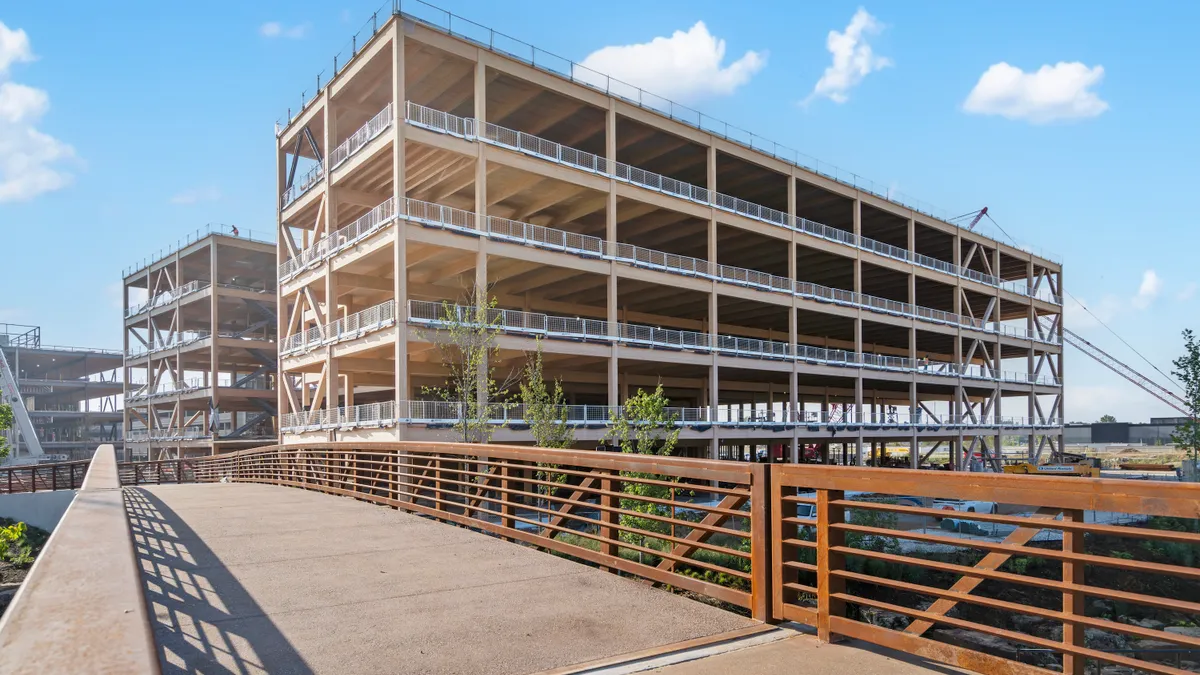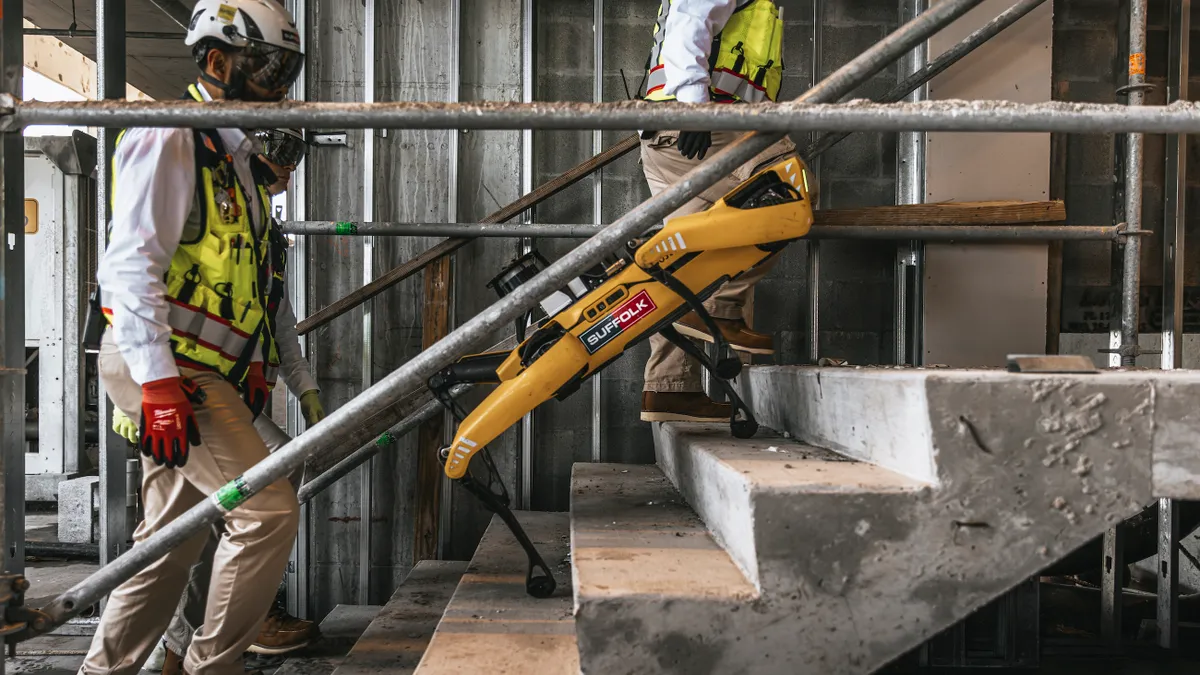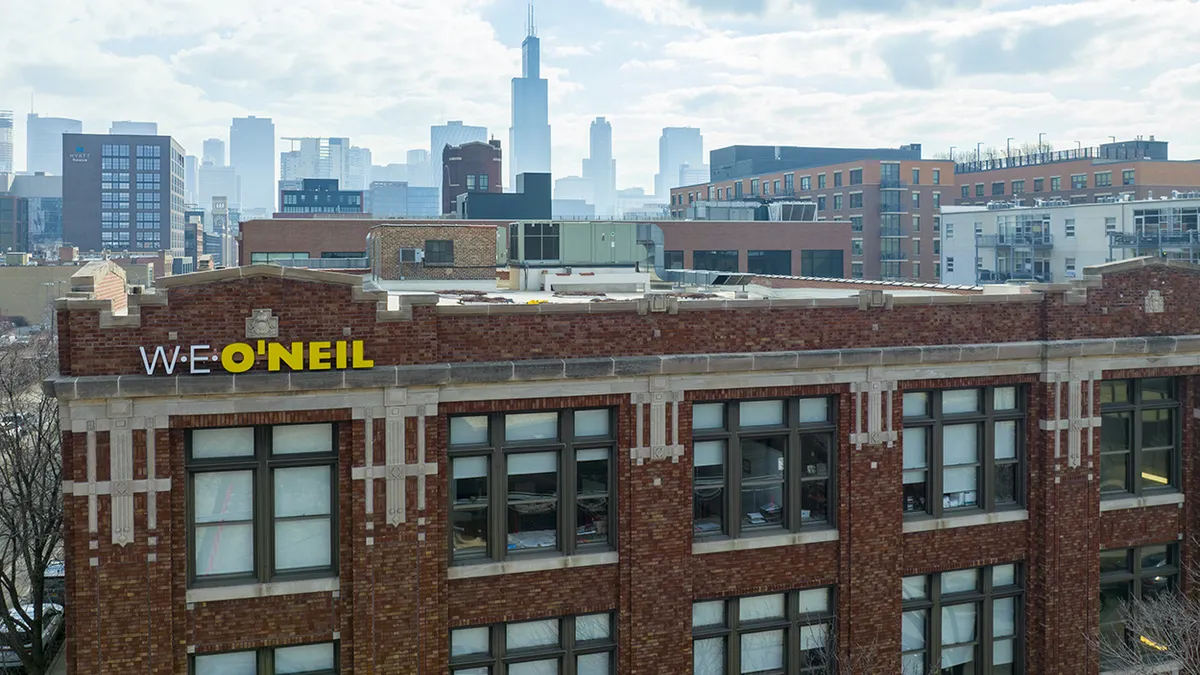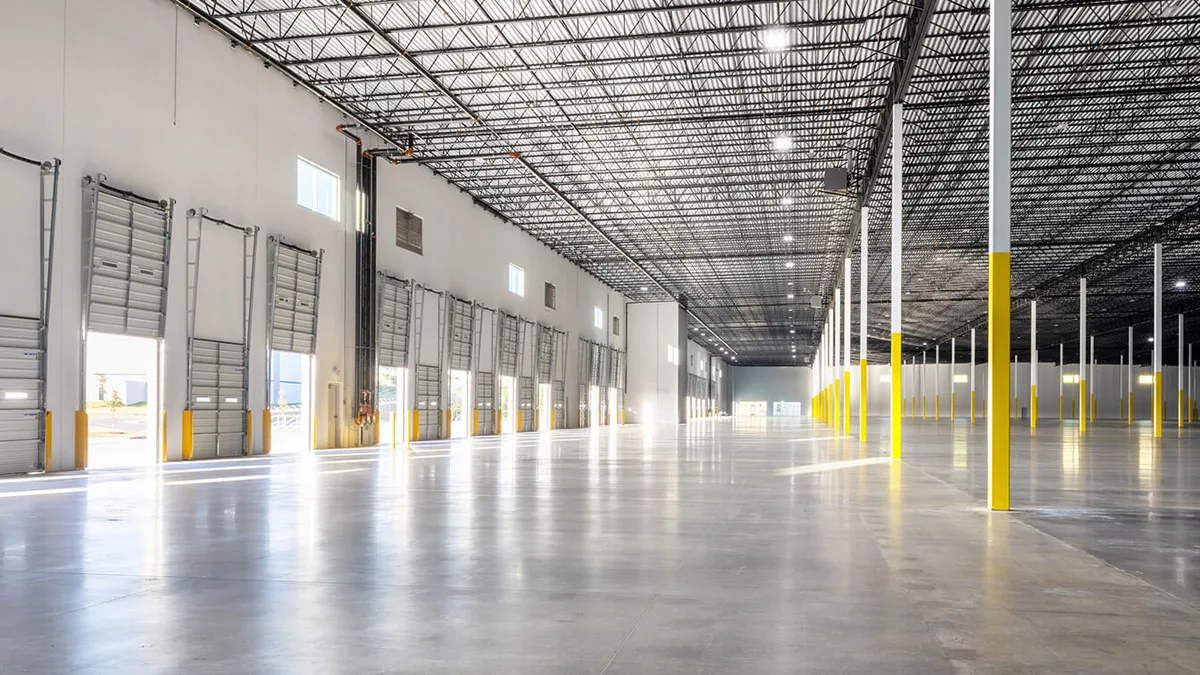Highlights
Revenue gains:
With steady, measured momentum, Hoar's revenue jumped $188 million in 2017 and has nearly doubled over five years.
Elevated backlog:
The company currently has $885 million of backlog.
Outlook:
"Heading into 2019, we'll be right bumping against that billion-dollar mark for the first time," said President Turner Burton.
Hoar Construction likes to think of itself as a small company. The Birmingham, Alabama-based firm prides itself on an 80-year history of trusted client relationships, close-knit culture and attention to detail onsite.
But a roughly $188 million revenue jump in 2017 propelled Hoar 30 spots up Engineering News-Record’s 2018 Top 400 Contractors list to No. 96, marking its first year among the top 100. As Hoar nears the $1 billion annual revenue benchmark, its leadership is faced with an excellent dilemma: How do we preserve the culture and core values that have brought us success on this scale?
Hoar’s big year wasn’t spurred by sheer luck or any one market, deal or initiative. Instead, it was the culmination and combination of careful planning, foresight and favorable economic conditions.
“It’s no secret that the economy is doing really well right now,” said Chief Operating Officer Randall Curtis. But rather than sit back and revel in the benefits, he and other decision-makers actively study the economy and consult experts in order to make their best predictions of where the market is headed, which areas will present the most growth opportunity and which will be the most fragile.
Hoar has opened offices in Austin, Houston, Nashville, and most recently, Washington D.C., capitalizing on demand for high-rise and multifamily projects in the regional market. In July, the company topped off Lumen at Tysons, a 32-story luxury apartment project that is among the tallest buildings in northern Virginia.
“We have diversified geographically into what we believe are the best markets throughout the southeast,” Curtis said. He’s of the opinion that there’s still more capacity in the multifamily housing market, but, he added, “we don’t want to have all our eggs in one basket.”
For this reason, the company has worked to secure a “well-rounded book of business” from commercial, residential, higher education, healthcare, institutional and other sectors, according to CEO Rob Burton, featuring such wide-ranging projects as Universal Studios’ Endless Summer Resort in Orlando; a 7,000-seat baseball stadium outside Huntsville, Alabama; and the dual-high-rise Broadwest project in Nashville.
When the economy does inevitably turn, Hoar leadership isn’t expecting anything disastrous, but they do expect to need to reshuffle their cards a bit.
Where one sector is down, another tends to be up, Curtis explained, and the company feels that its diverse offerings leave it well-positioned to pivot from markets that are slipping and seize on opportunities when they arise. “We’re trying to keep our finger on the pulse and understand where the need will be,” he said.
This overarching strategy is backed by diligence on a much smaller scale, down to the nuts and bolts of the jobsite. “We see ourselves as builders first,” explained president Turner Burton. “We get into the details … and think through exactly what it takes to make sure that project is successful.”
Turner Burton was tapped by Hoar’s leadership team in August as part of a long-term succession plan for his father, Rob. He brings 15 years of experience in superintendent, estimating, project management and division management roles at Hoar, and a love for the field first discovered prior to that, when he worked as a laborer and carpenter on Hoar projects throughout his college years.
Both Turner and Curtis, a 25-year veteran of the company who is also new to his executive role, attribute their career growth and success to the “Hoar Way” — encapsulating a commitment to its people, lean construction practices and integrity in all interactions.
Competition for skilled workers is fierce, they note, so Hoar is doubling down on initiatives to both develop the people it has and attract others who are ripe for growth with the company. Training programs cover the company’s “disciplined, process-driven” approaches to construction management, risk management, quality control and safety, Turner said. Employees can try their hand at brick-laying robots and 3D laser scanners, for example, or refine their soft skills in presentation and conflict management.
“The more we can grow the staff we have into future leaders in the construction business,” he said, “the better the industry will be and the better our company will be.” And offering such programs and promoting from within is just “paying dividends,” according to Rob Burton, to employees who have clearly bought in, some of them with 20-plus-year tenures at the company.
One of Hoar’s core values is “relentless pursuit of improvement,” and with the $1 billion revenue line in sight, teams are kicking this into full gear — but not at the expense of company culture, Turner said. “I would rather be the best version of us, at whatever size that allows us to hold on to that.”
Read More
-
Why a robot is MVP on a Hoar Construction project
By Kathleen Brown • Sept. 19, 2018




















